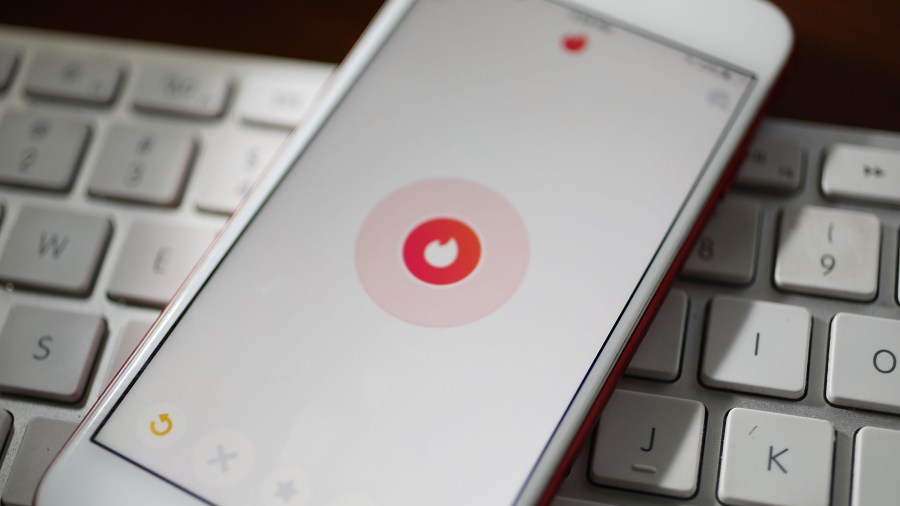Swipe right for safety features (and give up more data)

It was probably a busy weekend on Tinder with Valentine’s Day and all. Hopefully it was also a safe weekend on Tinder.
The app now has a panic button feature to let users report if they feel unsafe on a date, as well as a check-in feature to let friends know where you are when you’re out with someone. But as always, there’s a catch. You have to share your location constantly to use the new features.
I spoke with Marketplace’s media reporter Jasmine Garsd, who told me that these changes are happening partly because maybe Tinder itself isn’t a very good date. The following is an edited transcript of our conversation.
Jasmine Garsd: I think it’s a growing public awareness. I think initially, there was this period of being in love with [this] technology and it [was] so much fun, and I think the mood has completely shifted. I also think, for women on these apps, [it] feels like misogyny 2.0, just, within a tech space. I think there’s definitely been more stories and exposés about how on the free services offered by the Match Group, you can have a record of being a sexual predator, a sexual offender, and still have an account. I think that these apps and these companies are responding to that growing awareness and concern.
Molly Wood: Is this enough, though? It’s one thing to say, “We will allow you to call the police who will hopefully get there in time,” but does that remove the responsibility of these platforms to maybe do better screening?
Garsd: Look, on the one hand, what you have with all of these free apps and “free tech companies” is that we’re really coming to a realization as a society that there is no such thing as a free service. There are so many costs, whether it’s your privacy, your data, or also your safety. On the other hand, Match Group, which owns Tinder, last quarter, they reported a total revenue of $541 million. Tinder is the top grossing non-game app of last year. So, there is an interesting question of, can you invest some more in safety if you’re pocketing that kind of money?
Wood: But it’s interesting, because this app then introduces its own potential security risk, which in order to use it, you have to share your location data in real time, which feels a little bit of a devil’s bargain, to say the least.
Garsd: Yes, completely. There’s no such thing as a free app. There’s no such thing as a free tech service. You pay in your data and in your privacy. Gizmodo did find earlier that a handful of major names in tech ads grab the details that you give this app. It does lead to the question, though, why do the users have to shoulder the cost of safety, and not the extremely lucrative company?

Related links: More insight from Molly Wood
Speaking of growing Tinder engagement, TechCrunch reported that Tinder is now testing new social features to make it easier for people to talk to each other, including conversation prompts for when people match with each other and don’t know what to say. There is no word yet if “How about that sports ball event, right?” is one of the prompts.
Also, as if dating online isn’t bummer enough, there’s a Recode story reminding us all, like Jasmine just told us, anytime you’re using a free service, including a dating app, there’s data collection on the back-end, and probably targeted advertising in your future. Isn’t that romantic?
The future of this podcast starts with you.
Every day, the “Marketplace Tech” team demystifies the digital economy with stories that explore more than just Big Tech. We’re committed to covering topics that matter to you and the world around us, diving deep into how technology intersects with climate change, inequity, and disinformation.
As part of a nonprofit newsroom, we’re counting on listeners like you to keep this public service paywall-free and available to all.
Support “Marketplace Tech” in any amount today and become a partner in our mission.


















